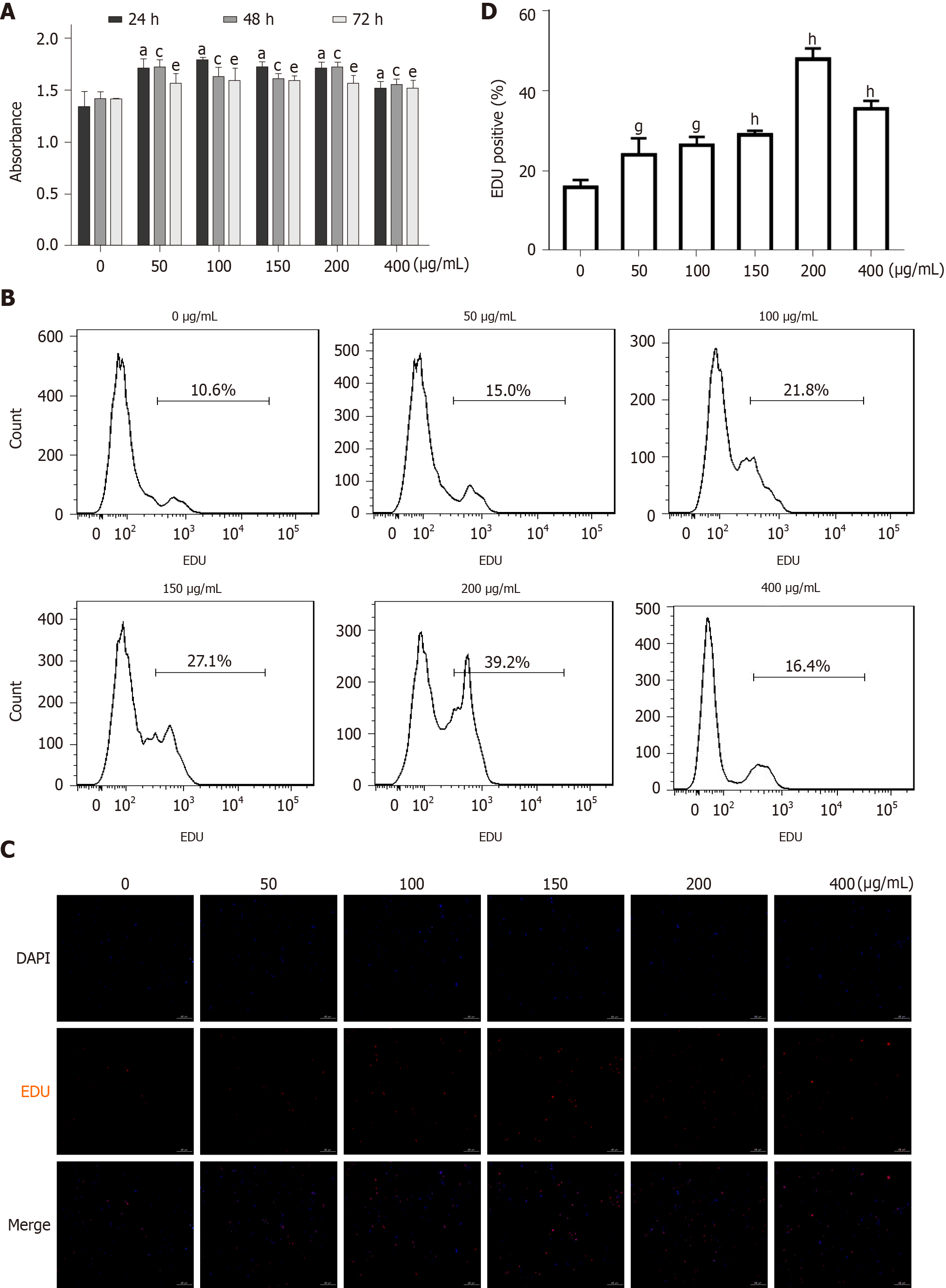Copyright
©The Author(s) 2021.
World J Diabetes. Nov 15, 2021; 12(11): 1875-1893
Published online Nov 15, 2021. doi: 10.4239/wjd.v12.i11.1875
Published online Nov 15, 2021. doi: 10.4239/wjd.v12.i11.1875
Figure 5 Effect of advanced glycation end products on the proliferation of cultured rat aortic vascular smooth muscle cells (n = 6).
A: MTT detection of the effect of incubation with advanced glycation end products (AGEs) (0, 50, 100, 150, 200, or 400 µg/mL) for different times (0, 24, 48, or 72 h) on rat aortic vascular smooth muscle cell (RASMC) proliferation. aP < 0.05 for the comparison of the 24 h control group with the control group, cP < 0.05 for the comparison of the 48 h control group with the control group, eP < 0.05 for the comparison of the 72 h control group with the control group; B: Proliferation of RASMCs treated with AGEs (0, 50, 100, 150, 200, or 400 µg/mL) for 24 h quantified using flow cytometry. Data were obtained from six independent experiments (n = 6); C: EdU staining showing the effect of incubation with AGEs (0, 50, 100, 150, 200, or 400 µg/mL) for 24 h on RASMC proliferation; D: Proliferation of RASMCs treated with AGEs (0, 50, 100, 150, 200, or 400 µg/mL) for 24 h quantified using fluorescence microscopy. gP < 0.05 compared with the control group. hP < 0.01 compared with the control group. EdU: 5-ethynyl-2-deoxyuridine.
- Citation: Xiao ZL, Ma LP, Yang DF, Yang M, Li ZY, Chen MF. Profilin-1 is involved in macroangiopathy induced by advanced glycation end products via vascular remodeling and inflammation. World J Diabetes 2021; 12(11): 1875-1893
- URL: https://www.wjgnet.com/1948-9358/full/v12/i11/1875.htm
- DOI: https://dx.doi.org/10.4239/wjd.v12.i11.1875









